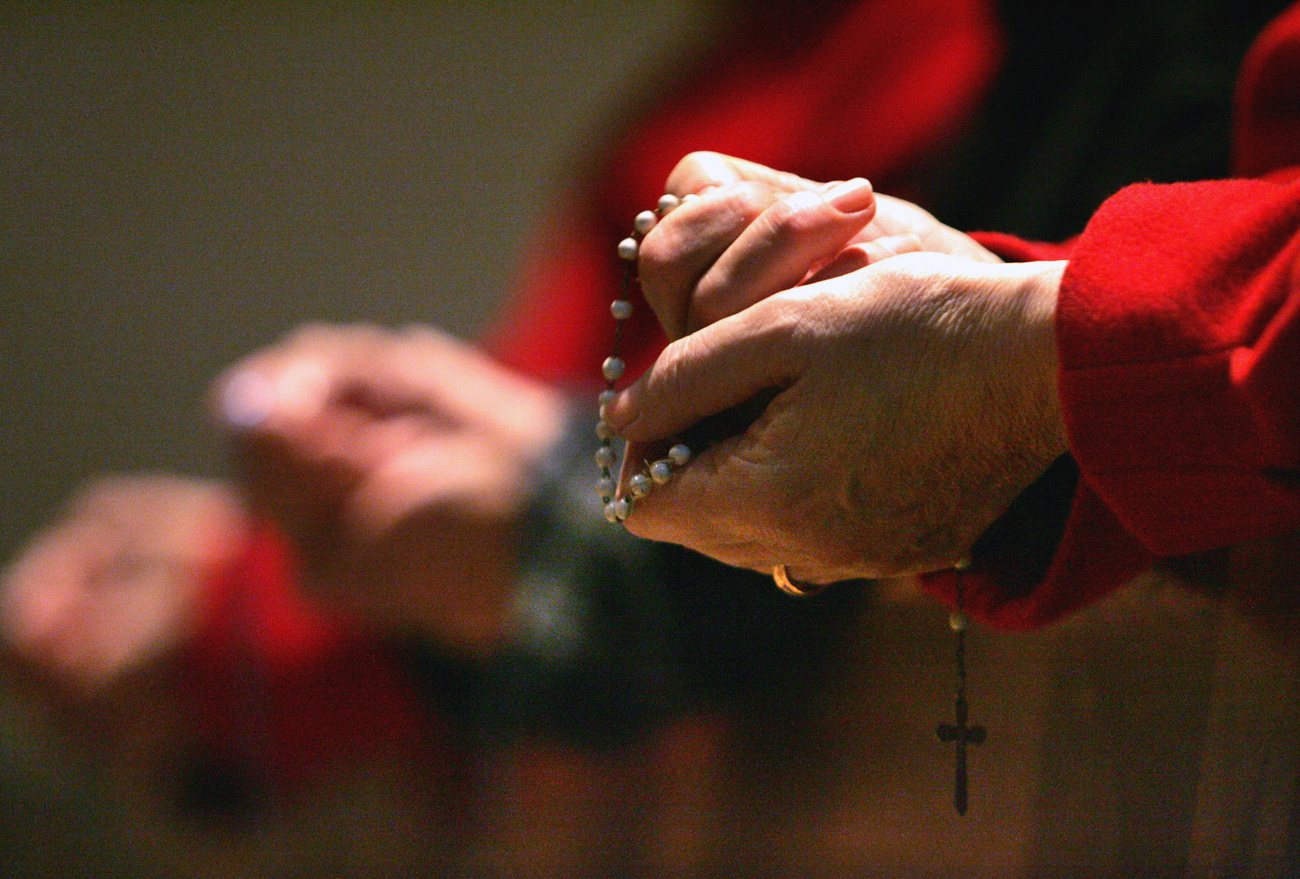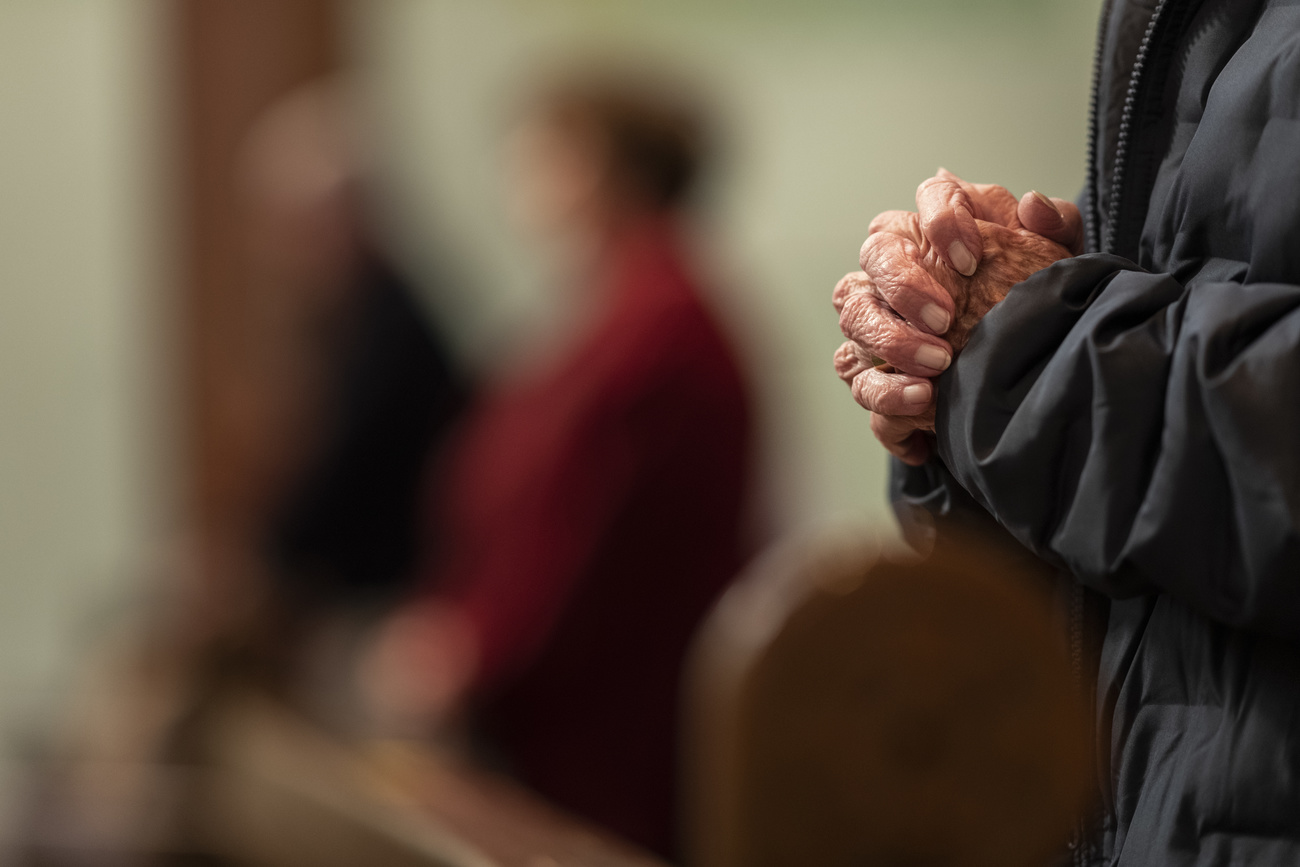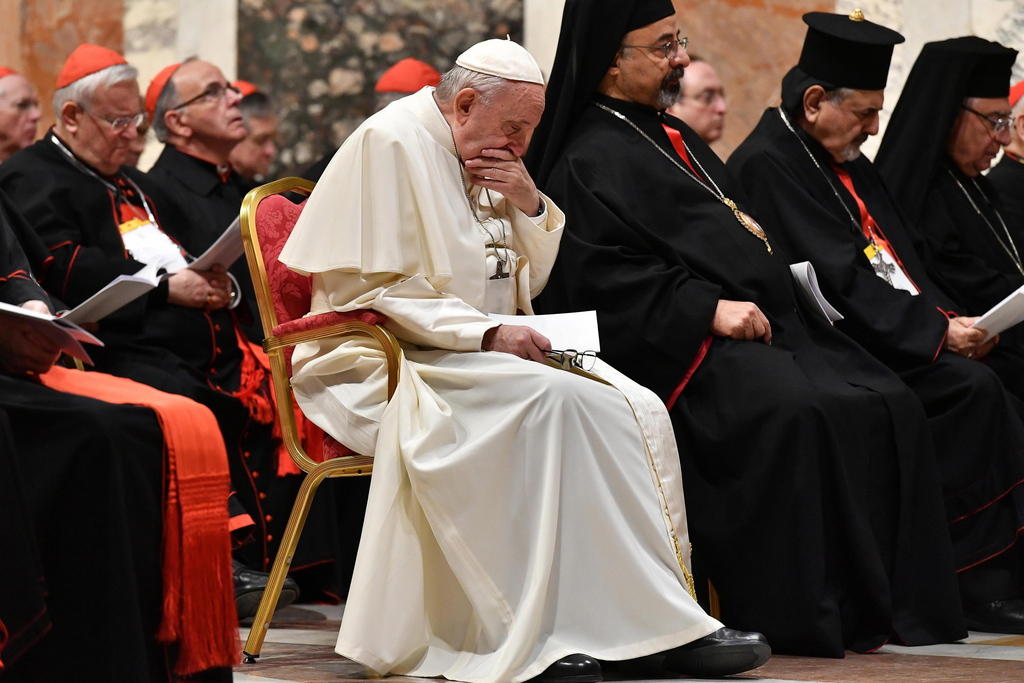
What next after Swiss Catholic Church sexual abuse revelations?

An official inquiry into the Roman Catholic Church in Switzerland has identified over 1,000 cases of sexual abuse since 1950. The Vatican has also ordered an investigation into high-ranking Swiss Catholic clerics. A look at the aftermath of this week’s disturbing revelations that have shaken the Church.
An extensive, year-long studyExternal link of sexual abuse by Catholic priests and others in Switzerland, commissioned by the Swiss Conference of Bishops and led by two University of Zurich historians, this week revealed over 1,000 cases since 1950, including accusations against 510 people. With few exceptions, those accused of wrongdoing were male. Over half of the victims were men or boys, and three-quarters of the documents showed the sexual abuse involved minors.
Over half of the cases took place during pastoral care and about 30% occurred in places like schools, homes and boarding schools. Some incidents took place during confessions or consultations. The researchers found many cases were “concealed, covered up or downplayed”.
“Church officials routinely transferred accused and convicted clerics, sometimes even abroad, in an effort to avoid secular criminal prosecution and secure reassignment for clerics,” they said. “In doing so, the interests of the Catholic Church and its leaders were placed before the well-being and protection of parishioners.”

More
Sweeping study finds 1,000 cases of sexual abuse in Swiss Catholic Church since 1950
The Zurich researchers went through thousands of pages of documents, gathered by church authorities. But they said many sources of information haven’t been properly studied. In some cases, documents had been destroyed to cover up any alleged wrongdoing.
They noted that the Holy See’s embassy in Switzerland had denied their request for access to its archives. And there were “major obstacles” when trying to consult the archives at the Vatican itself.
The researchers have been promised another CHF1.5 million ($1.68 million) to pursue the study through 2026.
Investigation launched into Swiss Catholic clerics linked to abuse
Just two days before the report was published, the Swiss Conference of Bishops announced a Vatican-ordered investigation into high-ranking Catholic clerics in Switzerland in connection with sexual abuse. It said there were allegations against several active and retired bishops as well as other clergy for their handling of abuse cases.
Specifically, they are accused of covering up abuse cases. There are also accusations that some committed sexual assaults themselves in the past. Media reports say the Vatican received a letter with the allegations in May and subsequently appointed Swiss bishop Joseph Bonnemain to head an investigation into his confreres.
Swiss Catholic leaders issue mea culpas
Since the news broke, senior Catholic leaders from across the country have held press events or released statements to clarify their positions, apologise, announce the filing of criminal complaints against suspects or promise change.
“As ecclesiastical institutions, we carry a great share of responsibility,” the Swiss Conference of Bishops said. Members of the church hierarchy “must face up to this guilt” and the necessary consequences, they added.
The first revelations about abuse cases within the Catholic Church came from the United States. In 1985, the Doyle Report showed that the Archdiocese of Boston had spent $10 million covering up abuse cases. Boston Globe journalists later revealed an elaborate system of cover-up. Following the outcry, the US Catholic Church commissioned an independent study that identified 10,667 possible cases of abuse and 4,392 accused between 1950 and 2002.
In Ireland, the 1995 case of a priest who abused 90 children caused outrage. In 1997, the government accepted responsibility for systematic abuse cases in church institutions. In 2002, an official investigation was conducted. Further investigations into dioceses and homes followed.
In 2002, the Catholic Church in Germany responded to the scandals in the US and Ireland by issuing guidelines for dealing with sexual abuse. But it was not until reporters revealed abuse at a Berlin Jesuit school in 2010 that archives and personnel files were reviewed. In 2014, an independent study was commissioned that identified 1,670 suspects and 3,677 victims.
After abuse cases came to light in 2016 in France, bishops and religious congregations commissioned an independent study in 2018 that estimated 2,900-3,200 suspects and 330,000 victims since the 1950s.
Portugal published an independent study in 2021 documenting over 4,800 cases of abuse by clergy and church employees since 1950.
In 2022, the Italian Bishops’ Conference provided limited insight into reports of abuse cases. Apart from the report by the victims’ organisation “Rete l’ABUSO”, there has been no independent study into allegations.
The media has reported abuse in Spain but no systematic procedure exists to document cases. The national newspaper El País has documented around 1,000 cases since 2018.
Most countries have yet to address abuse by members of the Catholic Church. Pope Francis promised more “transparency” in spring 2023.
Source: SRF
“We are committed to a change of culture within the Church,” declared Charles Morerod, bishop of Lausanne, Geneva and Fribourg. He backs proposed reforms, such as new institutional structures for reporting cases, psychological control of candidates for priesthood and a ban on the destruction of documents about abuse cases.
Morerod is purportedly accused, along with Jean-Marie Lovey, the current bishop of Sion, of not intervening or following up following alleged abuse cases. Both do not exclude resigning. On Wednesday Morerod was rushed to hospital to undergo surgery.
Tougher action and re-making the priest
“We’ve been telling them for ten years to do something about the abusers and nothing has moved. What the victims need to hear today is that ‘there was abuse and we are going to sanction’. But the church does not sanction people right now,” Sylvie Perrinjaquet, president of CECAR, an independent sexual abuse commission, told Swiss public television, RTS.
Jacques Nuoffer, chair of the Swiss victims’ support group SAPEC, lamented that the structure of the Church “poses a problem and slows everything down”. “Each bishop is independent and has all the power,” he said.
To ensure internal governance changes, more authority should be given to lay people within the Church, argues Laurent Amiotte-Suchet, a sociologist of religions at the Vaud School of Health Sciences. It’s important that grassroots demands reach the “top of the pyramid” to help transform the institution via its religious councils, he told RTS.
“We should also try to remake the priest as an ordinary person,” he added.
Nuoffer hopes religious schools and monasteries will now use this opportunity to encourage victims to come forward and denounce past cases of “unacceptable behaviour”. He would also like to see the setting up of a national call centre for victims as well as more resources for research into the legal, psychological and sociological aspects to shed further light on the problem of abuse within the Church.
But he recognises that there is still much work to be done. “The psychological tests of priests would be a step in the right direction,” he told RTS. “The measures announced by the Swiss Conference of Bishops need to be fine-tuned. For the moment, they’re just words. We need to see what’s going to happen. Then we can play a role in pushing, in making things clearer and more effective.”

More
Pope meets with Swiss victims of sexual abuse

In compliance with the JTI standards
More: SWI swissinfo.ch certified by the Journalism Trust Initiative






























You can find an overview of ongoing debates with our journalists here . Please join us!
If you want to start a conversation about a topic raised in this article or want to report factual errors, email us at english@swissinfo.ch.